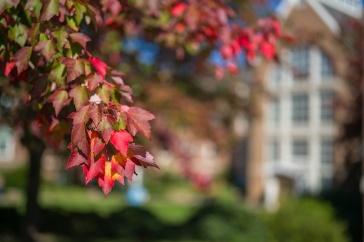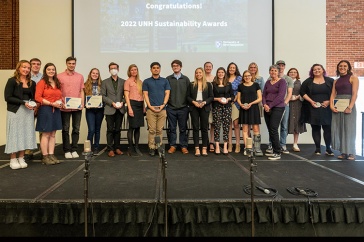
In an effort to minimize and prevent indoor air quality (IAQ) issues from occurring in campus buildings, the Office of Environmental Health and Safety (OEHS) in collaboration with the Sustainability Institute and UNH facilities has developed an IAQ management plan to assist in providing UNH faculty, staff, students, guests and visitors indoor environments that are free of airborne contaminants. The IAQ management plan is a proactive program where building occupants can participate through education and outreach to identify potential sources of pollutants and implement corrective actions to eliminate them. Through a concerted effort by building stakeholders, facilities operations, campus energy and OEHS, this plan is designed to educate and inform the community about addressing IAQ concerns in the workplace.
While most IAQ complaints revolve around strange odors or non-specific symptoms, some are the result of a potentially hazardous source. Concerns with IAQ have increased since energy conservation efforts were instituted in buildings during the 1970s, when reductions in fresh outside air contributed to the buildup of potential contaminants. IAQ complaints can range from single isolated events involving comfort (temperature, relative humidity, drafts) or unfamiliar smells and odors, to more complex issues where the air quality may be suspected of causing illness. Identifying the underlying cause or causes can be very simple or extremely challenging as there can be many variables in play, including potential sources, building functions, mechanical systems and varying individual sensitivities.
While this program is voluntary in nature, OEHS encourages our stakeholders to contact us for more information and to schedule an appointment with our IAQ representatives to meet and further discuss the details of the plan.
The Office of Environmental Health and Safety works to assure safe and healthful environments for all segments of the campus population through programs of information and education, review and monitoring, technical consultation and provision of direct services. Contact us at our website or at 862-4041.



















































